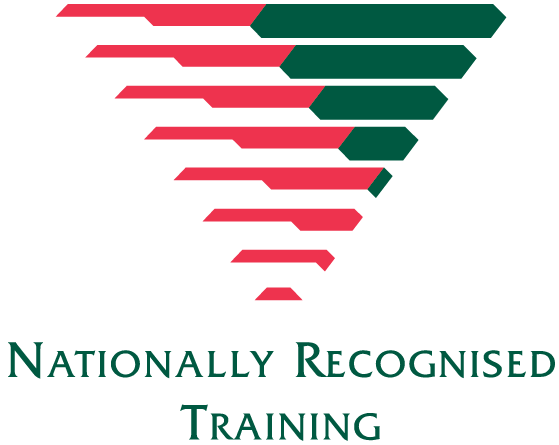Who is the course suitable for?
The CHC51015 Diploma of Counselling is ideal for individuals interested in pursuing a career as a professional counsellor, helping individuals manage personal, emotional, and psychological challenges.
The qualification is also ideal for students who wish to support people dealing with issues like anxiety, depression, relationship difficulties, grief, trauma, or stress will find this diploma particularly valuable.
It is suitable for those already working in fields like community services, social work, or healthcare who wish to enhance their skills by gaining formal qualifications in counselling.
Course Duration
- 12 – 18 Months
All students are to engage in at least 10 hours of supported self-paced learning each week during the course. Supported self-paced learning is to be undertaken by the students outside of the scheduled hours according to the student’s individual learning needs. However, to support the students AGAE will provide a self-study guide that links to self-paced learning activities to these scheduled timetables.
Mode of delivery
- Face to face and / or Live Zoom Sessions
Training Location
- Victoria: GO2/1510 Pascoe Vale Road, Coolaroo Vic 3048
- South Australia: 225 South Rd, Mile End SA 5031
- Skills Centre Port Augusta: 4 Marryatt Street, Port Augusta 5700
Course Structure
To be awarded the nationally accredited certificate the CHC51015 Diploma of Counselling, a student must successfully complete a total of 17 units comprising of 13 core units and 4 elective units.
| Unit Code | Unit Name | Core / Elective |
|---|---|---|
| CHCCCS019 | Recognise and respond to crisis situations | Core |
| CHCCSL001 | Establish and confirm the counselling relationship | Core |
| CHCCSL002 | Apply specialist interpersonal and counselling interview skills | Core |
| CHCCSL003 | Facilitate the counselling relationship and process | Core |
| CHCCSL004 | Research and apply personality and development theories | Core |
| CHCCSL005 | Apply learning theories in counselling | Core |
| CHCCSL006 | Select and use counselling therapies | Core |
| CHCCSL007 | Support counselling clients in decision-making processes | Core |
| CHCCSM013 | Facilitate and review case management | Core |
| CHCDIV001 | Work with diverse people | Core |
| CHCDIV002 | Promote Aboriginal and/or Torres Strait Islander cultural safety | Core |
| CHCLEG001 | Work legally and ethically | Core |
| CHCPRP003 | Reflect on and improve own professional practice | Core |
| CHCCCS003 | Increase the safety of individuals at risk of suicide | Elective |
| CHCCCS014 | Provide brief interventions | Elective |
| CHCCCS017 | Provide loss and grief support | Elective |
| CHCMHS001 | Work with people with mental health issues | Elective |
What resources are used to deliver the training?
Student Handbook
A comprehensive Student Handbook will be provided to each student. This document outlines the course structure, objectives, key concepts, and guidelines, serving as a reference throughout the program. It also includes essential information on safety protocols and best practices. The handbook contains:
- Key learning points and summaries for each unit
- Theoretical readings and additional resources to deepen understanding
This resource ensures students are well-equipped to navigate the course and apply their knowledge effectively.
Textbook
The Textbook for students studying the Certificate IV in Alcohol and Other Drugs provides essential information to help them navigate through the course content, practical tasks, and assessments. It serves as a comprehensive resource that supports students’ learning and ensures they understand the key concepts, skills, and requirements they need to succeed in the field of supporting teachers and students within a school environment.
By following the guide, students can ensure that they meet all course requirements and are fully prepared to enter the workforce as qualified teaching assistants, classroom aides, or education support workers.
Presentation Slides
Presentation slides are used by the trainer during the course delivery to visually support key concepts and discussions. These slides summarize the main points from the Textbook, helping students follow along and engage with the material. They may include:
- Diagrams and charts
- Example scenarios and case studies for group discussion
Practical Equipment & Tools
During practical sessions, students will typically use a variety of practical equipment and tools to perform their duties effectively. While this qualification focuses on skills, knowledge, and competencies related to client support and intervention strategies, some of the tools and resources used for hands-on learning and practice might include:
- Therapeutic Tools and Techniques (e.g., record worksheets, goal-setting templates): to help student familiarise with specific therapeutic models and tools used during counselling sessions.
- Ethical Guidelines and Codes of Conduct: to ensure students understand and follow professional ethics, confidentiality rules, and legal considerations while providing counselling services. Example, The Australian Counselling Association’s Code of Ethics
- Audio and Video Recording Equipment: to allow students to review and improve their counselling techniques by recording sessions (with client consent) for later analysis and feedback.
- Assessment and Evaluation Tools: to evaluate client progress and determine the effectiveness of counselling interventions.
These tools are vital in ensuring that students pursuing the CHC51015 Diploma of Counselling gain the practical experience and knowledge needed to effectively support individuals in a professional counselling setting. The hands-on application of these tools will help develop strong, ethical, and skilled counsellors prepared to meet the challenges of their profession.
Risk Assessment Templates
Students will be provided with templates to conduct risk assessments. These templates guide students in systematically evaluating hazards, assessing risks, and developing control measures for a variety of work-related situations. They are an essential resource for both individual and group activities, ensuring a structured approach to safety and risk management.
Assessment Tools
Assessment tools will include:
- Case Studies: to assess students’ ability to apply counselling techniques and theories to real or hypothetical client scenarios.
- Role-Playing and Simulation: to assess students’ counselling skills through simulated client interactions.
- Written Assignments and Essays: to assess students’ theoretical knowledge of counselling techniques, ethical guidelines, and client management strategies.
- Oral Presentations: to assess students’ ability to communicate counselling concepts, therapeutic approaches, and client support strategies effectively.
- Knowledge Questions: to assess students’ theoretical knowledge of counselling principles, ethical guidelines, mental health conditions, and treatment methods.
- Scenarios: to assess students’ understanding of ethical principles and their ability to navigate complex ethical issues in counselling.
These assessment tools are designed to ensure that students develop the required competencies in counselling practice, including theoretical knowledge, practical skills, ethical awareness, and reflective practice, all of which are essential for effective work in the field of counselling.
Assessment Arrangements
- Assessments are designed to allow the students to exhibit competencies in the unit(s) of competency.
- Assessment’s methods can include practical tasks, project, written responses, role play, supervisors report, case studies, etc.
- Information about assessment requirements will give out in the first class and explained clearly by the trainer/assessor.
- Students are not graded but deemed “Competent” or “Not Yet Competent”.
- Students can appeal an assessment outcome.
Student Support
AGAE offers a range of support services to meet everyone’s needs. Please contact AGAE directly for assistance with your requirements.
What can I do once I have completed my qualification?
Upon successful completion of this qualification, CHC51015 Diploma of Counselling, students will be equipped with essential skills to provide professional counselling services, assess and develop a clients’ treatment plans, apply ethical and legal standards, support clients with a variety of mental health issues, work with clients from Diverse Backgrounds, manage crisis situations, implement self-care and stress management strategies, work collaboratively with other professionals such as psychologists, social workers, medical practitioners, and educators, to ensure a holistic approach to client care and well-being.
These skills will prepare students to work as competent, ethical, and effective counsellors in a wide range of professional environments, offering support to individuals and groups in overcoming life challenges.
Career Pathways
By completing the qualification, CHC51015 Diploma of Counselling, students will be well-prepared to take on roles such as:
- Counsellor
- Mental Health Support Worker
- Youth Counsellor
- Crisis Counsellor
- Employee Assistance Program (EAP) Counsellor
- Family and Relationship Counsellor
- Substance Abuse Counsellor
These roles are available in a variety of settings, including community health organisations, schools, private practice, hospitals, social services, and non-governmental organisations (NGOs).
Education Pathways
Depending on your long-term career and study goals, upon completion of CHC51015 Diploma of Counselling, you may wish to progress completing:
- CHC52021 Diploma of Community Services
- CHC53315 Diploma of Mental Health
- CHC50221 Diploma of School Age Education and Care
AGAE does NOT guarantee any:
- Licensing outcome
- Employment outcome
- Successful completion of this course
Are there any prerequisites or entry requirements?
There is no entry requirement for this qualification.
The RTO has the following admission requirements:
- Students must be 18 years of age.
- Students must undertake Language, Literacy and Numeracy test prior to enrolment. To gain entry into this course, student must have been determined as having the appropriate LLN capability.
- This program has been designed to be delivered through classroom-based delivery and students must have the ability to attend the scheduled sessions as per the timetable and must have access to a computer and the internet to complete self-study work. Students are to be informed of the timetable on enrolment and must maintain the required student contact hours.
- Students must be prepared to follow industry dress code standards for the work placement component of the course.
- This course has no entry requirements, however, prior to work placement, students will be required to obtain a Working with Children’s Check, National Police Check at their own cost.
- Applicants need to have the mental, emotional, and physical capability and willingness to work with children for extended hours on a daily basis.
- Applicants must identify any issues including mental, emotional, and physical issues of relevance to this occupation and training at the time of registration.
South Australia:
All candidates who are seeking to access to training are required to participate in the Upfront Assessment of Need process.
For more details about the UAN assessment visit https://providers.skills.sa.gov.au/Deliver/Upfront-Assessment-of-Need
- Individuals who are unwilling to participate fully in all aspects of the UAN process may instead choose to undertake training through fee for service arrangements.
- Suitability to ensure there is a good fit between the individual and the qualification of choice support requirements to ensure early identification and planning for individual learning, personal or complex needs.
- Literacy and numeracy to ensure wherever possible the individual can, if otherwise suitable, undertake a vocational qualification with additional foundation skills training OR to provide a clear evidence base of need for accessing a foundation skills qualification.
The requirement to provide a Unique Student identifier (USI)
All students are required to obtain a Unique Identifier (USI) prior to enrolment or provide evidence if exemption from obtaining a USI. A student can obtain a USI by visiting the following website to create a USI number:
If a student has already previously obtained a USI number but does not know it, they can go to the website to obtain their USI:
Student can also sign a USI consent form to allow AGAE to search or create a USI number on their behalf. AGAE will not issue an AQF qualification if the student fails to adhere to this requirement.
Skills Recognition
Under the Australian Qualification Framework (AQF), AGAE accepts and provides Credit and Recognition of Prior Learning (RPL) to learners for units of competency and/or modules (unless licensing or regulatory requirements prevent this) where these are evidenced by:
- AQF certification documentation issued by any other RTO or AQF authorised issuing organisation, or
- Authenticated VET transcripts issued by the Registrar
Obtaining your certificate or Statement of Attainment after successfully completing your course
- AGAE will issue a certificate within 30 calendar days of successful completion of the course, provided all requirements are met, fees are fully paid, and the USI (Unique Student Identifier) has been supplied.
- For students who partially complete the course successfully, a Statement of Attainment will be issued, provided all fees are fully paid and the USI has been supplied.
Fees:
South Australia Funded Student:
$617.50 ‘Participant Eligibility Criteria apply’ for to be eligible for South Australia Funded Student fees. *Supported by the Skills SA
You can check your eligibility at:
- Must be 18 years and above and not enrolled at school
- An Australian or New Zealand Citizen (Funded and Non-Funded Course) or
- A permanent Australian Resident or An eligible visa holder (Funded and Non-Funded Course) for more details on eligibility for funding courses visit:
https://providers.skills.sa.gov.au/Deliver/Student-eligibility-for-subsidised-training
Other States:
The cost for the full course for non-funded students is $6,000. This includes all tuition materials, administration fees, and training materials to complete the course. Students will be required to pay a deposit of $500 at the time of enrolment. Students/candidates can then either pay the balance in full upon commencement of the course or use the payment plan option available, which consists of ten monthly instalments of $550.
AGAE does not take more than $1,500 as part of monthly instalment at any one time.
Cooling off period
Our refund policy is included in the agreement that you are required to sign to indicate acceptance of the offer of enrolment and all the terms and conditions specified. All self-funded course fees include a non-refundable deposit as outlined on the Course Outline and Student Agreement, which must be paid to secure a student’s place in the course.
The deposit is non-refundable except in the instance where AGAE is required to cancel a course due to insufficient numbers or for other unforeseen circumstances.
Students who withdraw from a course and wish to seek a refund or have the amount they owe on their fees reduced must apply to AGAE in writing, outlining the details and reason for their request.
Students who have not completed a withdrawal form are not eligible for consideration of a refund or reduction in fees. Eligibility for a refund will be assessed based on the services provided to the student and the costs incurred by AGAE in order to provide those services to the student. The outcome of the refund assessment will be provided by written notice to the student’s registered address outlining the decision and reasons for the decision along with any applicable refund or adjustment notice.
AGAE adheres to the cooling-off period as specified according to Australian Consumer Law. Further details can be accessed in the AGAE’s Student Handbook which is available on our website: https://www.agaeducation.com.au/
How To Enrol
To enrol in this course, please complete the Enrolment Form available on the website and email it to: admin@agaeducation.com.au
Or you can call us on:
- SA: (08) 7480 3318 / 0451 600 626
- All other states: (03) 8313 3249 / 0451 600 626
We will contact you to discuss your needs prior to finalising your enrolment.
Please ensure you read our Student Handbook along with this Course Outline.




